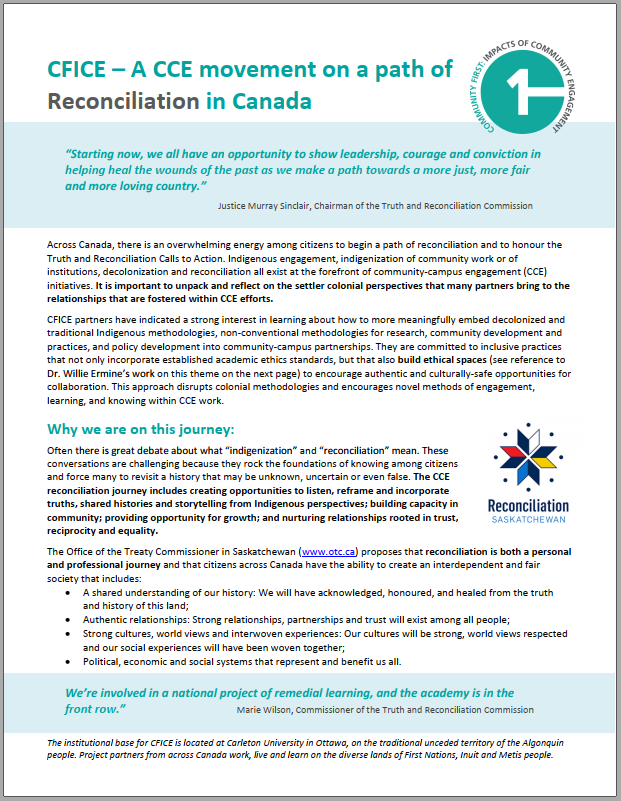Across Canada, there is an overwhelming energy among citizens to begin a path of reconciliation and to honour the Truth and Reconciliation Calls to Action. Indigenous engagement, indigenization of community work or of institutions, decolonization and reconciliation all exist at the forefront of community-campus engagement (CCE) initiatives. It is important to unpack and reflect on the settler colonial perspectives that many partners bring to the relationships that are fostered within CCE efforts.
CFICE partners indicated a strong interest in learning about how to more meaningfully embed decolonized and traditional Indigenous methodologies, non-conventional methodologies for research, community development and practices, and policy development into community-campus partnerships. They are committed to inclusive practices that not only incorporate established academic ethics standards, but that also build ethical spaces (see reference to Dr. Willie Ermine’s work on this theme) to encourage authentic and culturally-safe opportunities for collaboration. This approach disrupts colonial methodologies and encourages novel methods of engagement, learning, and knowing within CCE work.
Below is a 2-pager outlining CFICE’s commitment to Truth and Reconciliation as well as resources others can review to learn more information about how to build truth and reconciliation into their community-campus engagement efforts.
Click on the image below to open a PDF version of the document, or CLICK HERE to access the FRENCH version.
